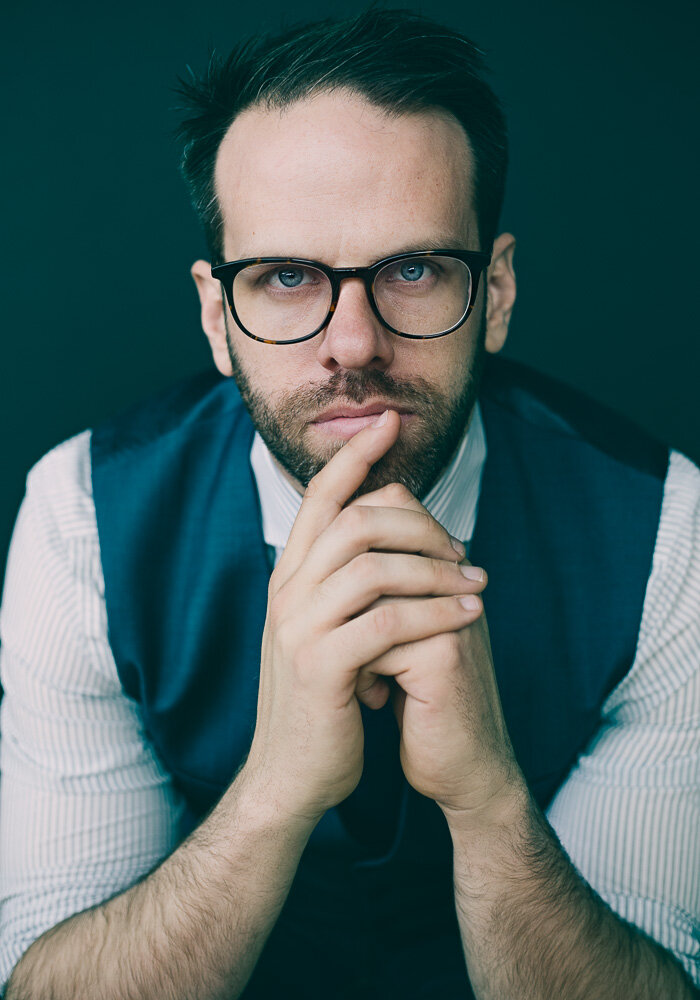In college, when I was first dating my wife, we used to rent a movie to watch together almost every night. Back then we had to go to Blockbuster to pick something out.
It was always an event. We’d slowly walk the aisles and see what caught our fancy. Sometimes it was something new - an action flick or an Oscar winner, perhaps - and other times we might go for a classic. I remember jolting across the store, excitedly holding up a DVD to show Stephanie.
“This one!” I’d say in a whisper.
She’d smile and get excited, too. Then we’d wait in line, head home, and check another film off our must-see list.
I was thinking this week about how much I miss that.
These days everything feels the same. I shop for groceries, talk to clients, watch movies, read the news, order supplies, and fill my time all in one 1920x1080 window. It’s cold and lifeless and unenjoyable. There’s no separation between one activity and the next. None of it feels special. Everything happens on a screen and it all blurs together. Every single day it’s more of the same.
When you browse through Netflix in search of a new movie, you’re being shown a set of films chosen by an algorithm. It’s all based on your previous viewing history and what a computer thinks you might enjoy. But when we would walk around Blockbuster it wasn’t anything like that. There was no mission — we were waiting for a film to catch our eye and call out to us.
Sometimes it would be the box art, like a shiny case or bright colors. Other times it might be an employee pick or a recommended film. And sometimes we’d just take a gamble on a film and get really lucky. However we chose, though, it was our choice and that made it special.
We spent so much time at Blockbuster that we came up with a game to play while we were browsing the racks. We’d look at the other people in the store and see if we could match them to their car out front, based only on their looks and behavior. Sometimes we’d have to mosey around the store for twenty minutes, just so we could wait for someone to leave and see if we were right.
Those are the little moments that I miss most. Each activity was accompanied by its own unique set of characteristics: a special aroma, an endless list of inside jokes, background noise, and an atmosphere all its own. Now there’s a sameness to everything that makes it hard for me to recall when I stopped doing one activity and started the next. I’ve grown weary of that — I want less of the same.
The pandemic has exacerbated this problem. Running errands right now is a huge hassle. Lines are long, there are too many rules, and the neighborhood still feels weird. It’s just easier to automate those things, so we find ourselves ordering things online to avoid the chaos. It’s just so convenient. But I miss browsing the aisles and picking stuff out for myself. I miss being able to differentiate between the various parts of my day.
It’s not only the pandemic, though. This has been happening for a very long time. That’s why I’m on the search for more mystery. I want more things in my life to remind me of those little moments that make life worth living — typewriters, cameras, classic movies, you name it. And, I even have a podcast in the works, too.
If it seems like I’m always going on about this that’s because it’s literally all I think about. I’m more sedentary than I’ve ever been in my life. All of my work is on a computer right now and a good deal of my spare time seems to involve a screen, too. It’s driving me nuts. So, I’ve been forcing myself to break free of my addictions and search for memorable experiences in other ways.
As I often say, none of my favorite experiences have ever taken place on a screen. Not a single one. In fifty years I’m not going to count any of my screen time amongst my favorite memories. My favorite memories are all moments in the real world — when enthusiasm and serendipity collide in an unexpected and unforgettable fashion. Those are the things I’ll always remember.
There are too many to name here, but I’ll leave you with one…
It’s 2008, I’m meandering around Blockbuster looking for the perfect movie. Stephanie is somewhere else in the store, doing the same. We’re on the hunt.
And then, at the back of the store, I see it. The one. The ideal film, almost glistening in the light.
I reach for it and as I do my hand meets someone else’s hand and I look up to see Stephanie’s face. We die laughing.
“This one!”
RELATED POSTS
About Mark Toland
Mark Toland is an award-winning mind reader and two-time TEDx Speaker. His mind blowing skills have been featured on NBC, ABC, FOX, CBS, NPR, WGN, Sirius XM, and more. Mark’s blog is a behind-the-scenes look at the life of a professional entertainer, full of creative thoughts for creative people. Sign up below so you’ll never miss a post.


















